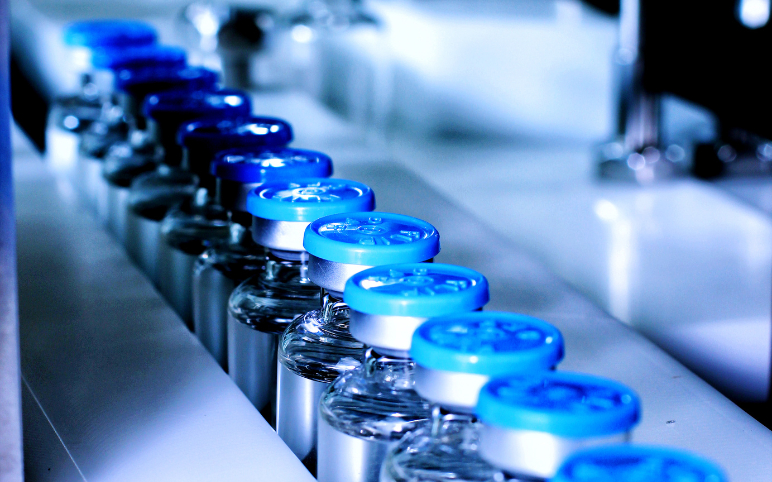Antibody-Drug Conjugate and Big Pharmaceutical Companies
Apr 01, 2015
Antibody Drug Conjugate and Big Pharmaceutical Companies Boom
Antibody-drug conjugates is gaining popularity in the Biopharmaceutical industries. As Initial trials with these targeted treatments show success, more companies are looking to produce these drugs. Although antibody-drug conjugates show promise in the development of effective cancer therapies, there are still a variety of challenges involved in enabling the safe manufacture of these hazardous drugs. ADC’s continues to gain popularity but the market is in infant stage with only 3 drugs approved by U.S. FDA.
- Mylotarg from Wyeth (now Pfizer) was the 1st drug approved for the treatment of acute myeloid leukaemia back in 2000 but was withdrawn a decade later.
- Adcetris (brentuximab vedotin) from Seattle Genetics was approved by the FDA in 2011 for the treatment of Hodgkin’s lymphoma and systemic anaplastic large cell lymphoma.
- Genentech’s Kadcyla (ado-trastuzumab emtansine) was given FDA approval in early 2013. ImmunoGen holds patents on Kadcyla and how it is manufactured, and receive royalties from Roche on its sales.
More than 264 Antibody-drug conjugates are under pipeline and as the large numbers of pharmaceutical companies are involved in antibody-drug conjugates market, therefore it is expected that this market will grow rapidly.
Downloads
Article in PDF
Recent Articles
- Nordisk ties up with Dicerna; Pfizer’s drug gets FDA nod
- Pfizer’s COVID-19 Vaccine; Calliditas’ NefIgArd trial; ViiV’s HIV Prevention Tr...
- From NASH to MASH: Unraveling the Evolution and Future of Liver Disease Treatment
- Delveinsight launched novel Drug Pipeline reports
- Head and Neck Squamous Cell Carcinoma -Pipeline Insights, 2016
 Although the market now has the presence of many large pharmaceutical companies, the technology lies with only a few. Seattle Genetics and ImmunoGen are the pioneers in technology licensing, with most drugs using their technology.
Although the market now has the presence of many large pharmaceutical companies, the technology lies with only a few. Seattle Genetics and ImmunoGen are the pioneers in technology licensing, with most drugs using their technology.
The future of ADCs in the biopharmaceutical market will ultimately depend on their clinical success. Companies and researchers are seeking to meet that challenge by optimizing the selection of all the components in the ADC—the antibody, linker, and cytotoxin—and successfully combining manufacturing techniques for both high- potency APIs and biologics. Earlier unsuccessful attempts to generate ADCs with therapeutic value have emphasized the important role each component plays in determining the efficacy and safety of the final ADC.
Since ADC’s are highly complex to manufacture, it provides unique opportunities and challenges to Contract Manufacturers Organizations (CMOs) and biopharmaceutical companies seeking CMP partners for their ADC candidates.
In some cases, three separate CMOs are utilized- one for the chemical linker, one for the antibody and one for the highly potent drug. Then, everything is shipped to someone else for conjugation.
Some CMO’s which offer ADC Conjugation services include Lonza, Laureate Biopharma, Piramal Healthcare Pharma Solutions, Abbott contracts manufacturing, Aquitaine Pharm International, etc.
ADCs are sometimes described as armed antibodies and their cytotoxic components as warheads. Whether ADCs will prove to be an effective weapon against cancer or other diseases has yet to be seen as more are tested in the clinic.
By Shriya Sahni, Associate Analyst, DelveInsight
For more information on this Report, please mail at info@delveInsight.com
Downloads
Article in PDF
Recent Articles
- Bristol-Myers Squibb to nix; Pfizer commits $100M; Merck and GSK production issues; Shire unloads...
- CTEXLI Approved for Cerebrotendinous Xanthomatosis; SIGX1094 Wins Fast Track for Diffuse Gastric ...
- FDA approves; Sun Pharma Recalls; Mezzion filed; Sanofi’s antibody to treat
- Small interfering RNA (siRNA) Therapeutics
- DelveInsight: One Year Anniversary!



